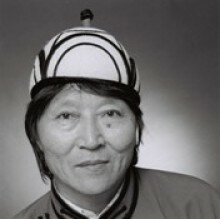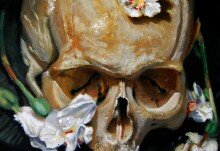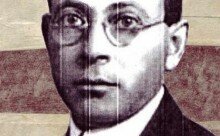
Galsan Tschinag whose name in his native Tuvan language is Irgit Shynykbai-oglu Dshurukuwaa, was born in as the youngest son of a nomadic cattle herder. From 1962 until 1966 he studied German at the university of Leipzig: German was to become the language of his literary work. He went back to teach at the university of Ulaanbaatar and worked for some time as a journalist.
Under an oppressive Communist regime he became a singer, story-teller and poet in the old tradition of the Tuvan people. With one leg in modern society and the other in an ancient nomadic past, he really is a man of two worlds. As chief of all Tuvans, Tschinag led his people, scattered under Communist rule, back in a huge caravan to their original home in the High Altai mountains on the border with Russia. He lives alternately in the Altai, Ulaanbaatar, and Europe.
Galsan Tschinag has published writes short stories, novels and poetry. His publications include: Ein tuwinische geschichte (A Tuvan Tale, novella, 1989); Der siebzehnte Tag (The Seventeenth Day, two stories, 1992); Alle Pfade um deine Jurte (All the Paths Around Your Yurt, poems, 1995); Zwanzig und ein Tag (Twenty and a Day, novel, 1995); Nimmer werd ich dich zähmen können (I'll Never Be Able to Tame You, poems, 1996); Die Graue Erde (The Grey Earth, novel, 1999).
Galsan was awarded the Adelbert von Chamisso Prize in 1992.
[Galsan Tschinag took part in the Poetry International Festival Rotterdam 1999. This text was written on that occasion.]








